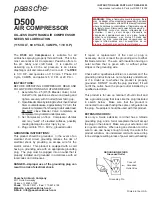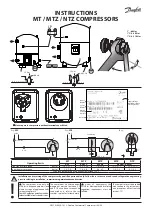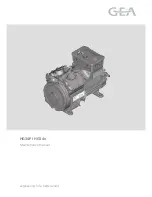
9 - ENG
HAZARD
RISK OF INJURY FROM LIFTING
WHAT CAN HAPPEN
HOW TO PREVENT IT
• Serious injury can result
from attempting to lift
too heavy an object.
• The compressor is too heavy to be
lifted by one person. Obtain assis-
tance from others before lifting.
RISK FROM NOISE
WHAT CAN HAPPEN
HOW TO PREVENT IT
• Under some conditions and duration
of use, noise from this product
may contribute to hearing loss.
• Always wear certified safety
equipment: ANSI S12.6
(S3.19) hearing protection.
SAVE THESE INSTRUCTIONS
FOR FUTURE USE
SPECIFICATION CHART
Model No.
C151S
Running Horsepower
1.7 *
Bore
2.875" (73.025 mm)
Stroke
1.45" (36.83 mm)
Voltage
120
Hz-Single Phase
60
Minimum Branch Circuit Requirement
15 amps
Fuse Type
Time Delay
Air Tank Capacity (Gallon)
15 (56.8 liters)
Maximum Air Pressure
225 PSI
Approximate Cut-in Pressure
175 PSIG
Approximate Cut-out Pressure
225 PSIG
SCFM @ 40 PSI
6.8 *
SCFM @ 90 PSI
5.1 *
* Tested per ISO 1217
Refer to Glossary for abbreviations.
GLOSSARY
Air Filter
Porous element contained within a
metal or plastic housing attached to
the compressor cylinder head which
removes impurities from the intake air of
the compressor.
Air Tank
Cylindrical component which contains
the compressed air.
Check Valve
Device that prevents compressed air
from flowing back from the air tank to
the compressor pump.
Cut-In Pressure
The low pressure at which the motor will
automatically restart.
Cut-Off Pressure
The high pressure at which the motor
will automatically shut off.
Electric Motor
Device which provides the rotational
force necessary to operate the
compressor pump.










































